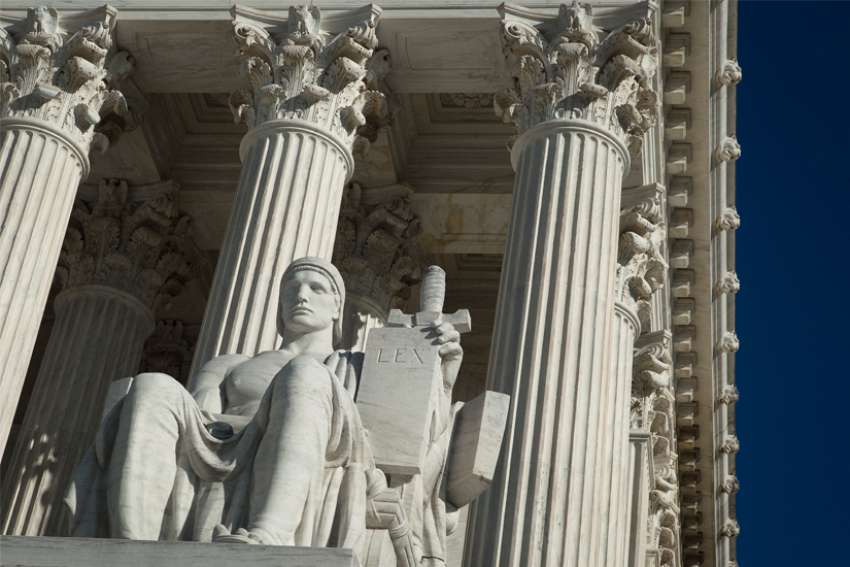The 5-4 vote, issued Sept. 1 with a one-paragraph unsigned opinion, said the challengers to the Texas law — which went into effect Sept. 1 — did not adequately address the “complex and novel antecedent procedural questions” in this case.
“This order is not based on any conclusion about the constitutionality of Texas’ law, and in no way limits other procedurally proper challenges to the Texas law, including in Texas state courts,” the opinion said, leaving open the possibility that the state’s abortion providers could challenge it in other ways.
The Texas abortion providers had come to the Supreme Court with an emergency appeal to stop the law, but the court initially did not respond.
The Texas Catholic Conference, the public policy arm of the state’s Catholic bishops, said it is the first time since Roe v. Wade that the nation’s high court “has allowed a pro-life law to remain while litigation proceeds in lower courts.”
President Joe Biden criticized the Supreme Court’s action and said in a Sept. 2 statement that his administration will look to launch a “whole-of-government effort to respond to this decision” and look at “what steps the federal government can take to ensure that women in Texas have access to safe and legal abortions as protected by Roe.”
The law, signed by Republican Gov. Greg Abbott in May, became effective at midnight Sept. 1. It is one of the strictest abortion measures in the country, banning abortions in the state after a fetal heartbeat is detectable. There is an exception for medical emergencies but not for rape or incest.
“We celebrate every life saved by this legislation. Opponents of the law argue the term ‘heartbeat’ is misleading. They call it ‘embryonic cardiac activity’ or worse, ‘electrically induced flickering of embryonic tissue.’ These attempts to dehumanize the unborn are disturbing,” the Texas bishops said in a Sept. 3 statement.
The night before the law took effect, court watchers on both sides of the issue kept vigil at the Supreme Court waiting for an order that never came. Abortion providers in the state had argued that the law would prevent about 85 per cent of abortions in the state and will likely cause many clinics to close.
At least 12 other states have legislation banning abortions early in pregnancy, but these bans have been blocked by courts.


